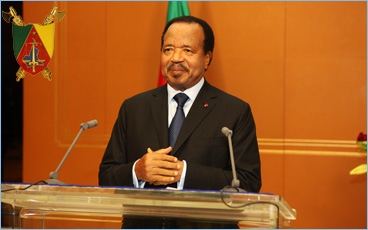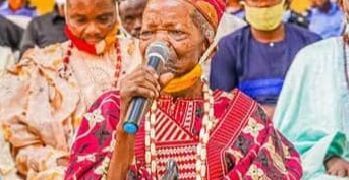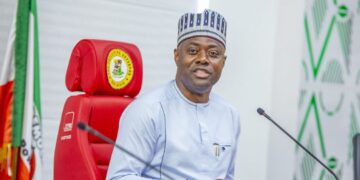Continental leading At-Large Structure (ALS) of the Internet Corporation for Assigned Names and Numbers, the DigitalSENSE Africa, in collaboration with the Cyber Rights Advocacy Coalition (CRAC) has petitioned the President of the Republic of Cameroun, Mr. Paul Biya, over the Internet shut down in the southern part of the country.
The group recalls that the incident of Internet shut down in the two Anglophone regions of the Republic of Cameroun, namely the South West and North West came on the orders of government of Cameroun through the Ministry of Posts and Telecommunications and Ministry of Communications.
In an open letter on behalf of the coalition, made available to newsmen, and endorsed by the Executive Director, Operations at DigitalSENSE Africa, Mrs Nkemdilim Nweke, they expressed concern over the increasing number of internet shut downs in Africa, especially the Central African countries, describing it as alarming.
According to the coalition, out of an estimated 10 shut downs in recent times in Africa, 7 were from the Central African countries including Cameroun, Burundi, Congo-Brazzaville, Chad, Gabon, the Central African Republic, Democratic Republic of Congo. This is in addition to Egypt, Sudan and Niger.
The coalition also said its worried, hence, they are adding their voices formally alongside other local, continental and international civil society organisations on the protracted subject, which they said was uncalled for in the first instance at this era of Information and Communication Technologies (ICTs) ruling the world.
In addition, they were disturbed that the Cameroun government’s action has led to disconnection and lack of Internet connectivity in two regions, at a time country like Canada a few days before proclaimed a high-speed internet, a basic service “necessary to the quality of life” of all Canadians.
The open letter dated February 14 with the theme: Internet Shut Down in Anglophone regions of Republic of Cameroun, the coalition noted that as a forward looking organizations of repute that see the future of African countries including the Republic of Cameroun and their economies, as well as efforts to largely alleviate poverty on the society; greatly depending on the availability and quality of Internet access to the citizenry at this 21st century and beyond.
“We wish to state that this action (by Cameroun) not only negates the possibility of Central Africa not meeting the Africa’s target within the 2063 Agenda, but the Republic of Cameroun being adversely affected both in the infrastructure development and human capital,” the group said.
They, therefore, solicited President Biya’s good offices, to as matter of urgency reverse the order given to the service operators through the Ministry of Post and Telecommunications.
“We also urge the Economic Community of Central African States (ECCAS) to quickly liaise with other regional and continental bodies to ensure a change of heart by Mr. Biya’s government,” the group said, stressing that ECCAS intervention would send the right signal to Mr. Biya and any other African country that may be thinking on following this ugly footstep, mostly in ECCAS region to realise the essence of the Internet to our daily existence.
The coalition further, encouraged local Civil Society Organisations in the Republic of Cameroun to remain steadfast while beckoning the global and International communities to condemn the action of Mr. Biya’s government in totality, because it distorts conventions including the African Peoples Right among others.
“Above all, the citizens’ access to the world should be upper most in the African leadership,” the group said, just as they ask the government of Cameroun guarantee internet access without further restriction to these two regions: South West and North West; otherwise known as Anglophone regions; reinstate commitment to keeping the internet connected and accessible, including social media to the people of Republic of Cameroun.
The coalition maintained that by collaborating with the African Union (AU), ECCAS in resolving whatever seemingly problem suspected to have led to the shut down in first instance and “embrace a new slogan of ‘Internet is for everyone’ because any clamp down on one is an injury and violation of cyber rights of citizens.”

















